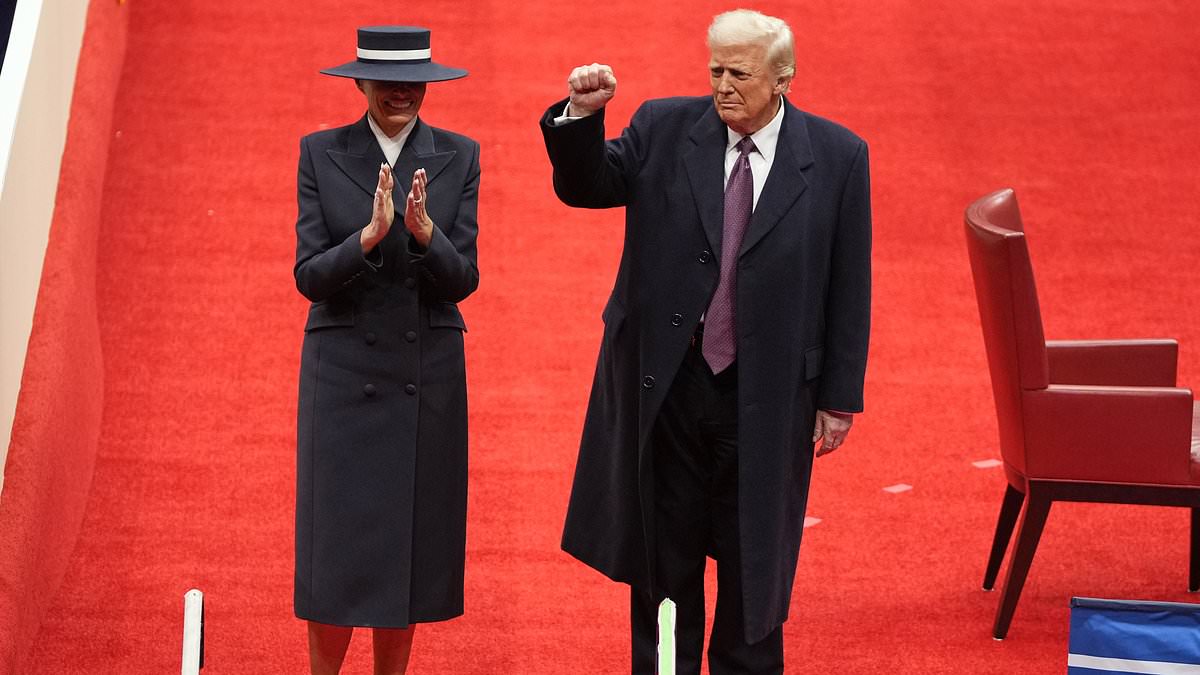We all know that Donald Trump’s return to the US Presidency comes with some challenges for .
Whatever you think of Trump the man, or his role as a political disrupter, there are enormous potential downsides for and the Labor government in particular.
What the returning President might do with tariffs is the biggest fear factor in the eyes of most economists.
For an export oriented economy like , we need to hope that our close ally status can reduce some of the planned tariff increases. But there is absolutely no guarantee that will happen.
In fact if anything shortly before his inauguration Trump made it clear on social media that reports from unnamed sources within his camp that the tariffs might be watered down were untrue.
But what about the other challenges Trump’s return to the White House pose for and Anthony Albanese as PM? Assuming Albo remains PM in the aftermath of our own election, due before the end of May.
For starters, Trump has declared a war on woke, and the sort of issues it spurs.
These include not only large chunks of Labor’s agenda, such as ideological climate change action, but the agenda the teals and Greens also argue for.
Whoever wins the next federal election, the odds are that the crossbench not only controls the senate, but the balance of power in the lower house too.
That will increase pressure on the n government to lean left, which would put it at odds with Trump’s agenda for the coming four years.
In a practical sense the US will now pull out of the Paris climate deal, which Albo has long been keen to promote as important. He’s also regularly used Labor’s commitment to it as an important contrast to what he claims is the Coalition’s stance.
But with the US pulling out, the value of that political wedge is reduced, as indeed is the value of the Paris agreement itself.
To be meaningful it needs US support, which is now a thing of the past.
Trump also says he’ll ban offshore wind farms, which Labor and the Greens say are an important piece in the renewables puzzle.
Then there is the Elon issue. Unless Trump and Elon Musk have a falling out, the tech billionaire is no friend of nor the Labor government, after Albo’s world first social media ban for children.
Musk’s advice to Trump is unlikely to do any favours right at a time when preferred status in Washington will be important. And it isn’t as if our Ambassador in Washington will be able to push past all these barriers.
Kevin Rudd was a major Trump critic who has been humbling himself ever since in a desperate bid to weasel his way into the returning President’s good books.
It is hard to see Rudd’s willingness to bend the knee now being convincing. If anything, Trump may well see it as a sign of weakness and up the pressure on . Which includes when negotiations start over the tariff adjustments, for example.
Albo all but cedes all responsibility for foreign affairs to his minister and senate leader Penny Wong, who attended Trump’s inauguration as the n government’s top representative.
Some PMs choose to inject themselves into foreign affairs, others are more stand-offish. Albo is the later, but Wong doesn’t have the relationships in Washington to help overcome the toxicity of Rudd’s relationship with Team Trump.
She has spent most of her time focused on Asia instead, not anticipating the challenges a Trump return might create – because the expectation was that it was unlikely to happen.
Yet here we are.
Throw in Wong’s strong advocacy on the international stage for a two state solution for Palestine – a course of action Trump is moving America away from not towards – and the differences between and the US on the foreign stage are obvious.
So the lack of firepower, and influence, of ’s foreign affairs team in Washington is cause for concerns now that Trump is back.
A further risk this creates is that the AUKUS deal gets revisited, although so far at least that’s all but been ruled out by Team Trump.
The bottom line is Labor is pushing in a direction that cuts against the grain of the Trump administration, egged on by the Greens and teals.
If the government secured a second term and doubles down on the approach it took during its first three years in office, ’s differences with the US will only grow larger.
